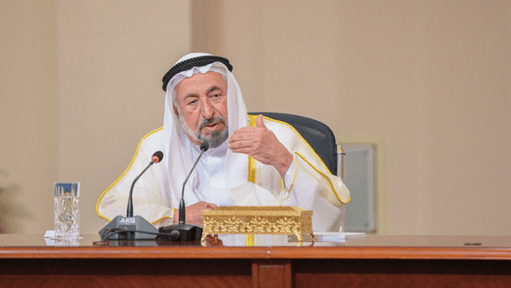
New Rental Law in Sharjah Enhances Tenant and Landlord Accountability
Sheikh Dr. Sultan Al Qasimi’s Regulations Streamline Lease Processes and Protect Rights in the Emirate
His Highness Sheikh Dr. Sultan bin Muhammad Al Qasimi, Ruler of Sharjah and Member of the Supreme Council, has issued a new rental law requiring landlords in the emirate to ratify rental contracts within 15 days of issuance. This law applies to properties leased for residential, commercial, industrial, or professional purposes in Sharjah.
Under the new regulations, if a landlord fails to ratify a lease contract within the stipulated period, the tenant can petition the judge of urgent matters to compel the landlord to certify the contract, according to the Sharjah Government Media Office. If the contract is not ratified by the municipality or relevant authorities, the landlord will face an administrative fine as outlined by the law's executive regulations, in addition to the standard certification fees.
The law further grants the municipality the authority to request a judge to obligate the landlord to ratify the lease and pay any associated fees and fines.
Written or Electronic Contracts Required
Both landlords and tenants are required to execute rental agreements in writing or electronically, using forms approved by the Executive Council of Sharjah. If a lease contract is not certified, either party may file a lawsuit with the Rental Disputes Centre. The landlord must pay the certification fees after confirming the lease's validity.
Landlord's Responsibilities
The law outlines several key obligations for landlords:
- Delivery of Property: Hand over the rented property in a suitable condition for its intended use without hindrances throughout the lease period.
- Maintenance: Conduct necessary maintenance unless otherwise agreed upon in the contract.
- Approval for Modifications: Provide written consent if the tenant wishes to make interior design changes or carry out other modifications, provided these do not affect the property’s structure.
- Tenant Protection: Ensure the tenant is not harassed or pressured to vacate the property, nor subjected to disruptions in services.
- Return of Security Deposit: Return any security deposits upon termination of the lease unless deductions are necessary for damages caused by the tenant.
Tenant's Responsibilities
Tenants, under the new law, have several obligations, including:
- Timely Rent Payment: Pay rent on agreed-upon dates.
- Property Use: Use the property in accordance with the lease agreement.
- Modifications: Obtain written permission before making any changes to the property.
- Maintenance: Carry out routine maintenance, unless otherwise specified in the contract, and allow the landlord to perform necessary repairs.
- Service Payments: Cover any damages caused and pay for services used during the lease term.
Exemptions from the Law
Certain properties are exempt from the new regulations, including:
- Agricultural lands.
- Properties granted by the government for residential purposes unless privately owned.
- Properties provided by employers to house employees without rent.
- Hotel and tourist facility properties rented exclusively to guests.
- Properties located in free zones.
- Properties governed by special decisions of the Sharjah Executive Council.
This law marks a significant shift in Sharjah’s rental landscape, ensuring greater accountability for landlords and providing additional protection for tenants in the emirate.
For any enquiries or information, contact ask@tlr.ae or call us on +971 52 644 3004. Follow The Law Reporters on WhatsApp Channels